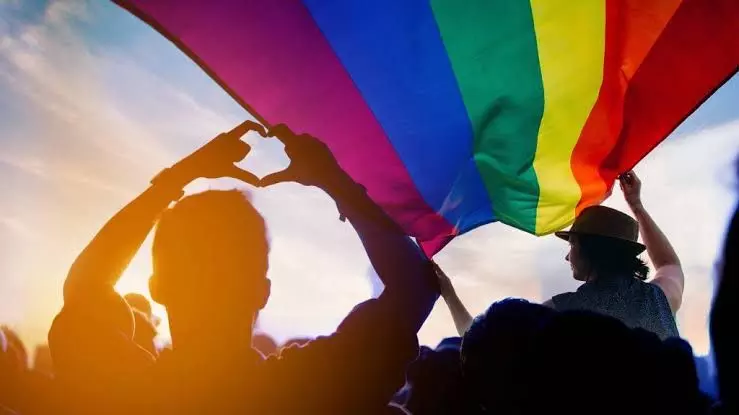SC verdict on same-sex marriages disappoints LGBTQ+ community in Hyderabad
The LGBTQ+ community in India, despite its large and vocal presence in various cities across the country, continues to face challenges in the acceptance of same-sex relationships
By Anoushka Caroline Williams
Representational Image
Hyderabad: The Supreme Court verdict on same-sex marriages has left the LGBTQ+ community in Hyderabad disheartened.
While Chief Justice of India DY Chandrachud acknowledged that "marriage is not a static and unchanging institution," the five-judge Constitution bench ruled that the court could not make a law, placing the responsibility on Parliament to amend the Special Marriage Act to address this matter.
Transgender activist Shane Mills from Hyderabad described the verdict as a `sugar-coated no’. Despite the disappointment, Shane highlighted some positive aspects of the verdict, particularly the recognition of the rights of transgender individuals in heterosexual relationships to marry under existing laws, including personal laws.
However, the overall result, according to Shane, amounts to a resounding rejection, and the community had hoped for more from the Supreme Court. She underlined the importance of granting permission for same-sex marriages, emphasizing that simply instructing the government to ensure non-discrimination against the queer community is insufficient without providing a sense of security.
Another LGBTQ+ activist from Hyderabad, Sandipan, expressed disappointment over the Center's strong stance against same-sex marriages. He noted that the government's influence on the matter could potentially override the desires of the LGBTQ+ community.
Nevertheless, Sandipan welcomed the Supreme Court's directive for the government to ensure the protection of the community against discrimination and violence. This directive offers hope for some form of protection, despite the setback in the case of legalizing same-sex marriages.
Speaking on the verdict, Dr. Priya, a psychologist who has worked closely with LGBTQ+ individuals, expressed concern. She said, "The LGBTQ+ community has fought hard for acceptance and equal rights. The Supreme Court's decision is a significant setback for their journey towards full inclusivity and recognition."
Vikram, a member of the queer community, emphasized the emotional toll this verdict has taken. He said, "It's hard not to feel disheartened by this decision. We had hoped for a more progressive stance from the highest court."
Background
A five-judge bench of the Supreme Court, led by Chief Justice of India DY Chandrachud, unanimously ruled against legalizing same-sex marriage in India on Oct 17. The bench also ruled 3:2 against civil unions for non-heterosexual couples.
The CJI and Justice Kaul argued for civil unions for non-heterosexual couples, while the CJI stated that the Supreme Court cannot strike down provisions of the Special Marriage Act (SMA) or interpret words differently. The petitioners sought a broader interpretation of the SMA to include same-sex marriages.
Justice Kaul argued that the legal recognition of civil unions for non-heterosexual couples represents a step towards marriage equality. However, all five judges agreed that there is no fundamental right to marry, and the majority view is that the legislature or Parliament must decide on bringing in same-sex marriage.
The court had heard arguments over 10 days in April and May, addressing issues such as equality, privacy, legal privileges, and the impact of same-sex marriages on children.
The LGBTQ+ community in India, despite its large and vocal presence in various cities across the country, continues to face challenges in the acceptance of same-sex relationships. Public attitudes toward these relationships remain complex, making it an ongoing struggle for equal rights and recognition.
The Supreme Court's recent ruling, while a disappointment for many, signifies that the journey toward acceptance and equality for the LGBTQ+ community in India is far from over. While there may be setbacks along the way, the community remains resilient, determined, and hopeful for a more inclusive and equitable future.